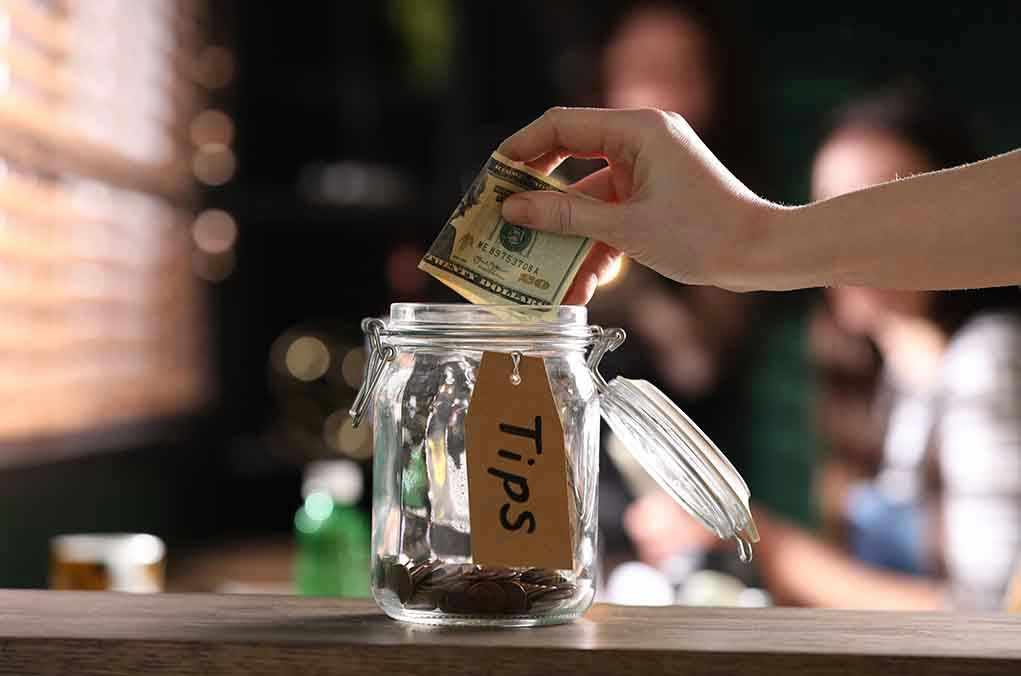
For the first time in U.S. history, a federal law exempts tips from income tax for millions of American workers, igniting both celebration and controversy over its impact on families, fiscal policy, and constitutional principles.
Story Snapshot
- Trump’s One Big Beautiful Bill Act (OBBBA) enacts a federal income tax deduction for tips in eight industries, effective 2025–2028.
- The deduction is capped at $25,000 annually and phases out for higher earners, with both employees and independent contractors eligible.
- The Treasury Department released a detailed list of over 60 qualifying jobs; the IRS is updating tax reporting procedures accordingly.
- The law delivers a campaign promise to support tipped workers, but critics warn of increased deficits and unresolved wage insecurity.
Trump Delivers on “No Tax on Tips” Promise: Law’s Scope and Mechanics
On July 4, 2025, President Trump signed the One Big Beautiful Bill Act, marking a landmark victory for service industry workers by fulfilling his 2024 campaign pledge to eliminate federal income tax on tips. The law applies to eight industry categories, including food service, entertainment, hospitality, and personal services, and is the first federal measure to broadly exempt tips from income tax. The deduction is capped at $25,000 per year and begins to phase out for higher earners, ensuring the primary benefit targets workers with modest incomes. Both employees and independent contractors are included, expanding relief beyond traditional payroll structures.
The Treasury Department has released an official list of more than 60 eligible occupations, from bartenders and wait staff to hotel food servers and beauty service professionals. The IRS has begun the process of updating W-2 and 1099 reporting procedures, and employers across affected sectors are adjusting payroll systems for compliance. The deduction covers tax years 2025 through 2028 unless Congress acts to extend the law. This move delivers a long-awaited break for workers who have historically seen their tips taxed at the federal level, despite ongoing economic pressures and debates around wage stagnation.
Who Benefits, Who Objects: Stakeholders and Power Dynamics
Key beneficiaries of the OBBBA include tipped workers in restaurants, hotels, salons, and entertainment venues, as well as employers who may see lower payroll tax liabilities and simplified reporting. Industry groups and business advocates have praised the law as a direct boost to take-home pay, potentially attracting more workers to the service sector and stimulating consumer spending. The Trump administration frames the measure as a restoration of American opportunity and a stand for working families, consistent with conservative priorities of individual liberty and limited government intervention in personal earnings. Congressional Republicans were instrumental in drafting and passing the bill, while the Treasury and IRS are tasked with implementation and oversight.
However, labor advocacy groups and some economists raise concerns about broader fiscal and social impacts. Critics argue that while the deduction brings immediate relief, it does not address underlying wage insecurity or the need for comprehensive worker protections. There is also apprehension that the deduction’s cap and phase-out may disproportionately benefit higher-earning tipped workers, while the projected $3.4 trillion increase in federal deficits over a decade—if all OBBBA provisions are extended—could threaten funding for other social programs. The debate underscores persistent tensions between fiscal responsibility and targeted tax relief.
Implementation Challenges and Constitutional Considerations
As the law takes effect for the 2025 tax year, employers and payroll providers are under pressure to update systems and comply with new IRS guidelines. The IRS is expected to release further instructions, particularly for independent contractors and small businesses navigating the deduction’s mechanics. The expansion of the FICA tip credit to beauty service businesses is a notable change, potentially benefiting salons and spas nationwide. While the law is celebrated by supporters as a win for constitutional principles—limiting federal overreach in personal income—opponents worry about the erosion of the broader tax base and the complexity of future tax policy. Some uncertainty remains regarding the law’s extension beyond 2028, pending Congressional review.
Despite these uncertainties, the OBBBA stands as a defining element of Trump’s 2025 agenda, with effects rippling through service industries, household incomes, and federal fiscal debates. The ongoing implementation and future legislative negotiations will determine whether this unprecedented tax break becomes a lasting fixture or a temporary reprieve in the larger contest over American economic and constitutional values.
Sources:
Bipartisan Policy Center explainer on the “no tax on tips” provision
Fox Business report on Treasury’s official list of eligible jobs
Ogletree Deakins legal analysis of employer compliance
House Ways and Means Committee section-by-section summary of OBBBA
Center for American Progress critique of the law’s broader impact











